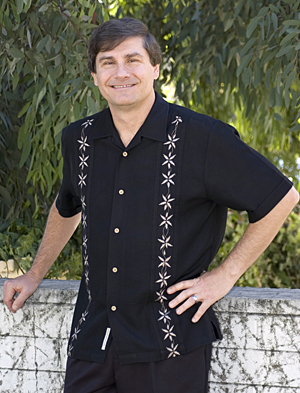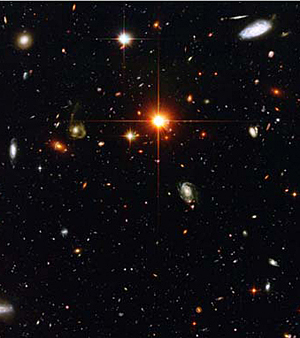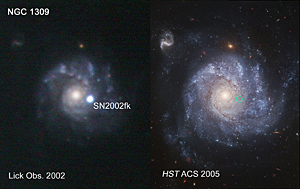


ADVERTISEMENT
- Rozovsky wins prestigious NSF Early Career Award
- UD students meet alumni, experience 'closing bell' at NYSE
- Newark Police seek assistance in identifying suspects in robbery
- Rivlin says bipartisan budget action, stronger budget rules key to reversing debt
- Stink bugs shouldn't pose problem until late summer
- Gao to honor Placido Domingo in Washington performance
- Adopt-A-Highway project keeps Lewes road clean
- WVUD's Radiothon fundraiser runs April 1-10
- W.D. Snodgrass Symposium to honor Pulitzer winner
- New guide helps cancer patients manage symptoms
- UD in the News, March 25, 2011
- For the Record, March 25, 2011
- Public opinion expert discusses world views of U.S. in Global Agenda series
- Congressional delegation, dean laud Center for Community Research and Service program
- Center for Political Communication sets symposium on politics, entertainment
- Students work to raise funds, awareness of domestic violence
- Equestrian team wins regional championship in Western riding
- Markell, Harker stress importance of agriculture to Delaware's economy
- Carol A. Ammon MBA Case Competition winners announced
- Prof presents blood-clotting studies at Gordon Research Conference
- Sexual Assault Awareness Month events, programs announced
- Stay connected with Sea Grant, CEOE e-newsletter
- A message to UD regarding the tragedy in Japan
- More News >>
- March 31-May 14: REP stages Neil Simon's 'The Good Doctor'
- April 2: Newark plans annual 'wine and dine'
- April 5: Expert perspective on U.S. health care
- April 5: Comedian Ace Guillen to visit Scrounge
- April 6, May 4: School of Nursing sponsors research lecture series
- April 6-May 4: Confucius Institute presents Chinese Film Series on Wednesdays
- April 6: IPCC's Pachauri to discuss sustainable development in DENIN Dialogue Series
- April 7: 'WVUDstock' radiothon concert announced
- April 8: English Language Institute presents 'Arts in Translation'
- April 9: Green and Healthy Living Expo planned at The Bob
- April 9: Center for Political Communication to host Onion editor
- April 10: Alumni Easter Egg-stravaganza planned
- April 11: CDS session to focus on visual assistive technologies
- April 12: T.J. Stiles to speak at UDLA annual dinner
- April 15, 16: Annual UD push lawnmower tune-up scheduled
- April 15, 16: Master Players series presents iMusic 4, China Magpie
- April 15, 16: Delaware Symphony, UD chorus to perform Mahler work
- April 18: Former NFL Coach Bill Cowher featured in UD Speaks
- April 21-24: Sesame Street Live brings Elmo and friends to The Bob
- April 30: Save the date for Ag Day 2011 at UD
- April 30: Symposium to consider 'Frontiers at the Chemistry-Biology Interface'
- April 30-May 1: Relay for Life set at Delaware Field House
- May 4: Delaware Membrane Protein Symposium announced
- May 5: Northwestern University's Leon Keer to deliver Kerr lecture
- May 7: Women's volleyball team to host second annual Spring Fling
- Through May 3: SPPA announces speakers for 10th annual lecture series
- Through May 4: Global Agenda sees U.S. through others' eyes; World Bank president to speak
- Through May 4: 'Research on Race, Ethnicity, Culture' topic of series
- Through May 9: Black American Studies announces lecture series
- Through May 11: 'Challenges in Jewish Culture' lecture series announced
- Through May 11: Area Studies research featured in speaker series
- Through June 5: 'Andy Warhol: Behind the Camera' on view in Old College Gallery
- Through July 15: 'Bodyscapes' on view at Mechanical Hall Gallery
- More What's Happening >>
- UD calendar >>
- Middle States evaluation team on campus April 5
- Phipps named HR Liaison of the Quarter
- Senior wins iPad for participating in assessment study
- April 19: Procurement Services schedules information sessions
- UD Bookstore announces spring break hours
- HealthyU Wellness Program encourages employees to 'Step into Spring'
- April 8-29: Faculty roundtable series considers student engagement
- GRE is changing; learn more at April 15 info session
- April 30: UD Evening with Blue Rocks set for employees
- Morris Library to be open 24/7 during final exams
- More Campus FYI >>
1:24 p.m., Oct. 28, 2009----Out in the cosmos, there is really no such thing as “empty space.” Much of space is actually “dark energy” -- a force that has overcome gravity and is pulling galaxies apart, expanding the universe.
Alex Filippenko, one of the world's leading astronomers, will delve into this great cosmological mystery in “Dark Energy and the Runaway Universe,” on Saturday, Nov. 7, starting at 7 p.m., at the University of Delaware's Clayton Hall Conference Center.
The talk will culminate the Harcourt C. “Ace” Vernon Public Lecture Series hosted by UD's Delaware Asteroseismic Center and sponsored by the Mt. Cuba Astronomical Observatory in Greenville, Del., in honor of the International Year of Astronomy.
The lecture is free and open to the public. Register online at the DARC Web site.
“Observations of very distant exploding stars (supernovae) show that the expansion of the universe is now speeding up, rather than slowing down due to gravity as expected,” says Filippenko, who is the Richard and Rhoda Goldman Distinguished Professor in the Physical Sciences at the University of California, Berkeley.
Filippenko was part of a research team that determined that the universe is expanding at an accelerating rate -- an observation that implies the existence of a mysterious, self-repelling property of space first proposed by Albert Einstein. The extraordinary finding was named Science magazine's “Breakthrough of the Year for 1998.”
“Over the largest distances, our universe seems to be dominated by a repulsive 'dark energy' -- an idea Einstein proposed in 1917, but renounced in 1929 as his 'biggest blunder,'” Filippenko says.
“Dark energy stretches the very fabric of space itself faster and faster with time. But the physical origin of dark energy is unknown, and is often considered to be the most important unsolved problem in physics; it probably provides clues to a unified quantum theory of gravity,” Filippenko notes.
An observational astronomer, Filippenko uses the Hubble Space Telescope and other observatories to study supernovae, active galaxies, black holes, gamma-ray bursts, and the expansion of the universe. A member of the National Academy of Sciences, he is one of the world's most cited astronomers, with some 600 scientific publications to his credit, as well as an award-winning textbook.
One of his major activities is to use supernovae as cosmological distance indicators, for which his group has developed the 0.76-meter Katzman Automatic Imaging Telescope (KAIT) at Lick Observatory in San Jose. He is also interested in searching for black holes and determining the physical properties of quasars and active galaxies.
Filippenko has won the top teaching awards at UC Berkeley and has been voted the “best professor” on campus six times. In 2006, he was selected as the Carnegie/CASE National Professor of the Year among doctoral institutions.
He also has produced four astronomy video courses with The Teaching Company and appeared on numerous television programs including Stephen Hawking's Universe and The History Channel's The Universe.
An avid tennis player and hiker, Filippenko says he enjoys world travel and “is addicted” to experiencing total solar eclipses (10, and counting).
Article by Tracey Bryant


